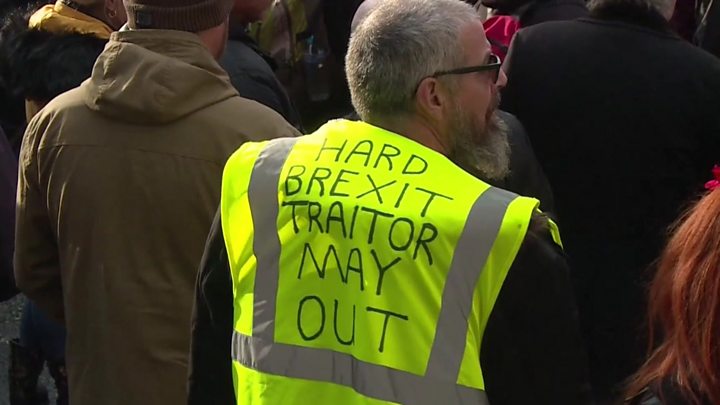Eric Drouet, one of the leading public figures in France's yellow vests protests, has been arrested for a second time - in what some fear may represent a clampdown on the movement.
He was arrested on suspicion of organising an unofficial protest in Paris, after he encouraging people to gather and lay candles near the Champs-Elysées for those who had died during months of protests. The demonstration was aimed at "shocking public opinion", as he put it.
His swift arrest at the scene prompted one leading political figure to label the protest leader's detention an "abuse of power" by the government.
Mr Drouet is a lorry driver by trade, and rose to prominence online during the emergence of the gilets jaunes or "yellow vests" movement in October and November 2018.
The movement focused initially on the rising cost of fuel, and was named after the high-visibility vests required by law by every motorist in the country.
Mr Drouet, 33, is credited with suggesting that angry drivers deliberately block or slow traffic in their area on 17 November, causing enough disruption to attract the government's attention.
After some 300,000 people took part in the first wave of weekend protests on that day, the movement spiralled. It was followed by weeks of similar large-scale protests across France.
Skip Twitter post by @ClementLanot
URGENT - #GiletsJaunes : Eric Drouet vient de se faire interpeller par les forces de l’ordre en marge d’un rassemblement à #Paris @CLPRESSFR pic.twitter.com/FxGWeeYwdo— Clément Lanot (@ClementLanot) January 2, 2019
Report
End of Twitter post by @ClementLanot
— (@ClementLanot) End of Twitter post by @ClementLanot
">
Mr Drouet was frequently cited as one of the figureheads of a movement that was largely decentralised and lacked any formal leadership. He acted, alongside several others, as a kind of spokesman for the protesters, rallying support on Facebook and appearing on television.
Then came his first arrest on 22 December, during the sixth wave of protests.
Deputy interior minister Laurent Nuñez said that Mr Drouet had organised an undeclared demonstration and had changed the planned venue.
He was charged with carrying a weapon in the form of a baton and for taking part in a group formed with intent to commit violence. His lawyer said the "baton" was just a piece of wood that was in his bag - and argued the arrest was politically motivated and aimed at discrediting him.
He is facing trial for his first arrest in June.
He was detained again on 2 January, suspected of organising another undeclared protest, after going on social media with a call for "action". This time, a few dozen people took part and no yellow vests were involved.
 Media playback is unsupported on your device
Media playback is unsupported on your device
The number of protesters turning out in Paris each weekend has gradually declined.
After making a raft of small economic concessions last month, President Emmanuel Macron struck a defiant tone in his new year address to the nation, saying the government would push on with its reform programme, and would "make no allowances in guaranteeing public order."
Mr Drouet's latest arrest has led to an outpouring of support from members of the gilets jaunes movement and also political opponents of the French president on the left and right.
Jean-Luc Mélenchon, a left-wing leader and former presidential candidate, wondered why he had been arrested again and suggested that it was "abuse of power". He accused a "politicised" police of harassing the leaders of the yellow-vest movement.
"Enough violence, convictions, and arrests against the yellow vests! .
Marine Le Pen, leader of the far-right National Rally party also expressed support for Mr Drouet.
Referring to Mr Macron's defiant new year speech, she tweeted: "His aggressive 31 December wishes and systematic violation of his opponents' political rights paint a terribly disturbing picture of Emmanuel Macron."
As well as guaranteeing public order, Mr Macron criticised unnamed individuals claiming to speak for the French people.
He said they were "the mouth-pieces of a hate-filled crowd who target elected representatives, security forces, journalists, Jews, foreigners and homosexuals."
Source: bbc.com


Comments